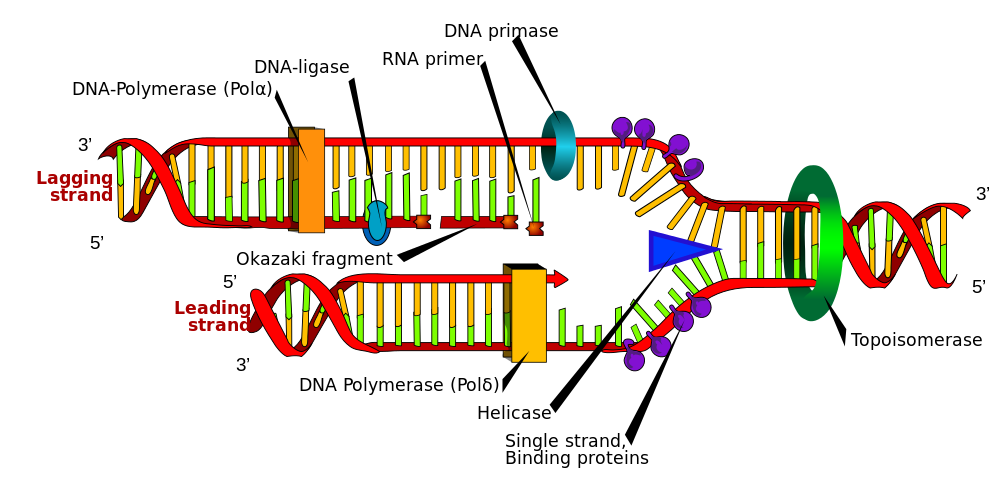
“The world is getting smaller and smaller.” This is the mantra we keep hearing with the advancing technologies of today. Everything seems to be shrinking, from flat-screen televisions, to cell phones, to GPS systems. It is amazing to see what the next new thing will be as new advances seem to multiply man’s “progress.” Yet, this technological explosion can sometimes be scary, because with new innovations, come new discoveries, and these new breakthroughs often force us to re-evaluate what we believe or know. As Christians, how should we face these new discoveries? It can be scary, hearing about what the scientific community is proclaiming. How does our faith fit in to all this science?
Recently, I had the opportunity to sit in on an upper-level university science class with my son. Molecular Biology…no, it didn’t sound too daunting to me. I had studied pre-Med in college, so this should be good “review.” Or so I thought…
As the instructor began the lecture, I had a few major revelations. The first one was that the university classroom experience had drastically changed from when I was in school. There were laptops everywhere, including the one in front of the instructor (who is younger than I am!). He was presenting a power point lecture (Gone are the days of white boards or chalkboards!). And note-taking had changed because all his slides were available to the students ahead of time, so students were either recording the lecture or adding notes to their laptops.

DNA_replication_en.svg
Well, I could deal with that. I use a laptop often, and am even comfortable with power point presentations. Yet I wasn’t prepared for what hit me next. We were being presented with information about what went on in a cell. And not just in a cell, but in its tiny organelle: the nucleus. The instructor was discussing the intricate process of DNA replication. And not just DNA replication, but how the DNA replicating “machinery” made of specialized proteins makes simultaneous copies in four different directions, some of it being “read” backwards and then translated forward. AND that there are other protein machines that patrol the newly-made copies of DNA, checking for accuracy and providing repair. Scientists have actually discovered eight different quality-control mechanisms. Eight!
Have you ever drawn a picture of a stick man? As I sat there in the lecture hall, I felt that I had learned the “stick man” version of the cell when I was in college…just the basic parts, like a head, body, arms and legs, and how they moved. Now, only a couple of decades later, scientists have discovered a completely new world inside the cell. It was like taking my stick man and adding Michelangelo-like details.
I was amazed and humbled. I realized how much more there was to the life sciences to which I was completely unaware! Moreover, these were processes occurring in a bacterial cell: the tiniest of living creatures!
At this point in the lecture, a final realization struck me. These intricate systems were occurring in a bacterium. A “simple” creature. A creature supposedly borne out of a primordial ooze where chemicals and a zap of energy theoretically came together to form the first life.
No, indeed, these are not simple processes. Technological advances have given us a greater understanding of what is going on inside the tiniest of creatures. And these processes require finely-tuned steps, using large, specially-formed proteins that work together in a beautifully choreographed process to keep a bacterium alive. Now consider these processes multiplied to all of the trillions of cells in our bodies, and the feeling of awe begins to set in.
I knew then that these new scientific discoveries weren’t foreboding, but rather, exciting. The more we learn about the complexities of a single bacterial cell, the more it becomes clear that from the tiniest of creatures to the largest, there is an Organizer who is upholding it all. It becomes even more difficult for those who hold to evolutionary theory to explain the origin of life.
So I say “Thank you!” to modern technology for giving me renewed encouragement in what I already trusted to be true. If we honestly believe that our God is the creator of everything, we should be excited to await all the new discoveries that science has to offer! Advanced innovations and the latest findings that result from them can help us learn more about the omnipotent Lord we have.
And maybe, when our family graduates our youngest child from homeschool high school, I need to go back to college with her!
